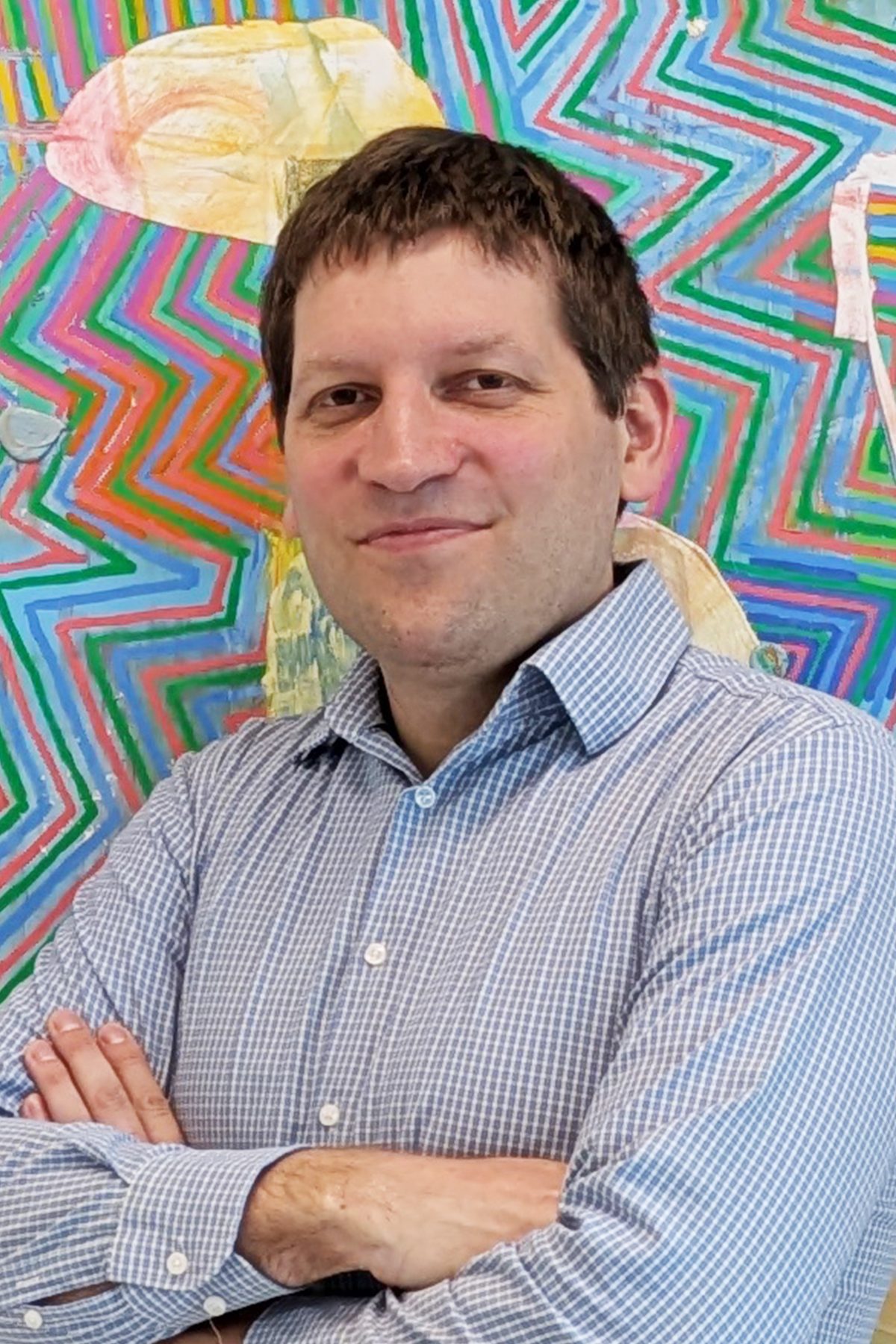The McKnight Endowment Fund for Neuroscience has selected four projects to receive the 2025 Neurobiology of Brain Disorders Awards. The awards will total $1.2 million for research on the biology of brain diseases, with each project receiving $100,000 per year in each of the next three years for a total of $300,000 funded per project.
The Neurobiology of Brain Disorders (NBD) Awards support innovative research by U.S. scientists who are studying neurological and psychiatric diseases. The awards encourage collaboration between basic and clinical neuroscience to translate laboratory discoveries about the brain and nervous system into diagnoses and therapies to improve human health.
An additional area of interest is the contribution of the environment to brain disorders. Early-life environmental stress is a powerful disposing factor for later neurological and psychiatric disorders. Studies show communities of color are at higher risk for these stressors, which range from environmental (e.g. climate, nutrition, exposure to chemicals, pollution) to social (e.g. family, education, housing, poverty). From a clinical perspective, understanding how environmental factors contribute to brain disease is essential for developing effective therapies.
“From decoding the complex mechanisms that underlie neurodegeneration to charting the circuitry of pain and uncovering how paternal exposures shape brain health, the researchers selected for this year’s award are pushing the frontiers of neuroscience in bold and necessary directions,” said Michael Ehlers, M.D., Ph.D., Chair of the Awards Committee and Entrepreneur Partner at MPM BioImpact. “This year’s projects include investigations into the higher-order interactome in C9orf72-mediated ALS, myelin dysfunction in Alzheimer’s disease, the spinal output map of pain states, and, for the first time since announcing our emphasis two years ago, an environmentally focused project examining how paternal stress impacts offspring neurobiology. These efforts promise to reshape our understanding of brain disease and point to transformative therapeutic possibilities for the future.”
The awards are inspired by the interests of William L. McKnight, who founded the McKnight Foundation in 1953 and wanted to support research on brain disease. His daughter, Virginia McKnight Binger, and The McKnight Foundation board established the McKnight neuroscience program in his honor in 1977.
Multiple awards are given each year. This year’s four awards are:
Hyejung Won, Ph.D., and co-principal investigator David Shechner, Ph.D.
(Won) Associate Professor, Genetics, University of North Carolina School of Medicine
(Shechner) Assistant Professor, Pharmacology, University of Washington, Seattle, Washington
Deciphering the higher-order interactome in C9orf72-mediated ALS
Brad Zuchero, Ph.D. and co-principal investigator Ethan Hughes, Ph.D.
(Zuchero) Assistant Professor, Neurosurgery, Stanford University, Stanford, California
(Hughes) Associate Professor, Cell & Developmental Biology, University of Colorado Anschutz Medical Campus, Aurora, Colorado
Does myelin dysfunction drive Alzheimer’s disease?
With 182 letters of intent received this year, the awards are highly competitive. A committee of distinguished scientists reviews the letters and invites a select few researchers to submit full proposals. In addition to Dr. Ehlers, the committee includes Nicole Calakos, M.D., Ph.D., Duke University; Gloria Choi, Ph.D., Massachusetts Institute of Technology; André Fenton, Ph.D., New York University; Joseph G. Gleeson, M.D., University of California San Diego; Tom Lloyd, M.D., Ph.D., Baylor College of Medicine; and Michael Shadlen, M.D., Ph.D., Columbia University.
Applications for both the 2026 Neurobiology of Brain Disorders Awards and Scholar Awards open August 1, 2025.
ስለ McKnight የተፈ ሰጭ ገንዘብ ለኒውሮሳይንስ ፈንድ
The McKnight Endowment Fund for Neuroscience is an independent organization funded solely by the McKnight Foundation of Minneapolis, Minnesota, and led by a board that includes prominent neuroscientists from around the country. The McKnight Foundation has supported neuroscience research since 1977. The Foundation established the Endowment Fund in 1986 to carry out one of the intentions of founder William L. McKnight (1887–1978), one of the early leaders of the 3M Company.
In addition to the Neurobiology of Brain Disorders Awards, the endowment fund also provides annual award funding through the McKnight Scholar Awards, supporting neuroscientists in the early stages of their research careers.
የአንጎል በሽታ ነርቭ በሽታ ሽልማቶች የነርቭ ሕክምና

Hyejung Won, Ph.D., Associate Professor, Genetics, University of North Carolina School of Medicine, and co-principal investigator David Shechner, Ph.D., Assistant Professor, Pharmacology, University of Washington, Seattle, Washington
Deciphering the higher-order interactome in C9orf72-mediated ALS
Amyotrophic lateral sclerosis (ALS) is a fatal neurodegenerative disorder characterized by the progressive loss of motor neurons and muscle weakness. Inherited forms of ALS are often linked to abnormal expansions of short DNA sequences—known as short tandem repeats (STRs)—in the C9orf72 gene. Despite this clear genetic link, developing effective therapies for C9orf72-mediated ALS has been challenging due to the complexity of its underlying mechanisms.
C9orf72-mediated ALS involves multiple disease processes, including toxic RNA and protein buildup. Emerging evidence also suggests that STR expansions may disrupt how DNA is packaged in cells, but the exact molecular mechanisms remain poorly understood. Drs. Hyejung Won and David Shechner aim to apply cutting-edge genetic and chemical biology tools to uncover how C9orf72 STR expansions reshape the DNA architecture and contribute to ALS pathology.

Upasna Sharma, Ph.D., Assistant Professor, Molecular, Cell, and Developmental Biology, University of California, Santa Cruz, California
Paternal environmental contributions to stress dysregulation in offspring
Can a father’s exposure to stress shape the biology of his children? Emerging evidence suggests it can. Epidemiological studies link paternal stress and adverse life experiences to increased risk of neuropsychiatric disorders in offspring, yet the mechanisms remain poorly understood. Dr. Sharma’s research aims to address this gap by investigating how chronic stress in male mice alters sperm and programs stress dysregulation in offspring.
Her lab found that male—but not female—offspring of stressed fathers exhibit blunted stress responses, a trait associated with certain psychiatric disorders. Dr. Sharma aims to uncover the molecular signals behind such inheritance, focusing on small RNA molecules in sperm. Her lab will dissect how stress signals are communicated from the brain to sperm and how these signals influence early development to affect offspring health. This research aims to offer new insight into the biological roots of stress-related disease risk.

Allan-Hermann Pool, Ph.D., Assistant Professor, Neuroscience, University of Texas Southwestern Medical Center, Dallas, Texas
Characterization and therapeutic targeting of the spinal output map of pain states
Pain is a motivational system that forces us to avoid physical harm converting detection of injuries to adaptive avoidance, coping and learning behaviors. While pain is important for survival, compromised pain processing can lead to chronic pain which remains a formidable public health burden. The cellular substrates that cause central persistent pain states and means to selectively therapeutically control them remain poorly defined. In previous work, the Pool lab has identified spinal cord neuronal repertoires that are driven by diverse surface and deep tissue injuries identifying candidate neural substrates for pain.
In new work, the Pool lab aims to elucidate the causal role of pain engaged spinal cord circuit nodes in pain processing. Furthermore, they seek to develop a new immunotoxin based strategy to locally eliminate pain mediating spinal cord cell populations and thereby deliver a modular single-administration therapeutic solution for pain management.

ብራድ ዦሹይ, ፒኤች., Assistant Professor, Neurosurgery, Stanford University, Stanford, California, and co-principal investigator Ethan Hughes, Ph.D., Associate Professor, Cell & Developmental Biology, University of Colorado Anschutz Medical Campus, Aurora, Colorado
Does myelin dysfunction drive Alzheimer’s disease?
Myelin is required for rapid and precise nerve signaling and plays essential roles in neuroprotection, learning, and memory. Myelin dysfunction and loss have emerged as early hallmarks of neurodegenerative diseases, including Alzheimer’s disease (AD). However, the cellular mechanisms driving myelin dysfunction and loss in AD remain largely unknown.
Together, the Zuchero and Hughes lab will use a rigorous mouse genetics-driven myelin phenotyping pipeline to define the effects of key AD-linked genes on myelin formation and integrity. The project will leverage the complementary expertise of the Zuchero lab in myelin cell biology and genetic tool building, and the Hughes lab in longitudinal in vivo imaging of myelin formation/dynamics and behavioral assessments.
Overall, this project seeks to open up an emerging area of AD research that may reveal myelin as a new, untapped therapeutic target—a transformative research goal that the Zuchero and Hughes labs are poised to tackle together.


